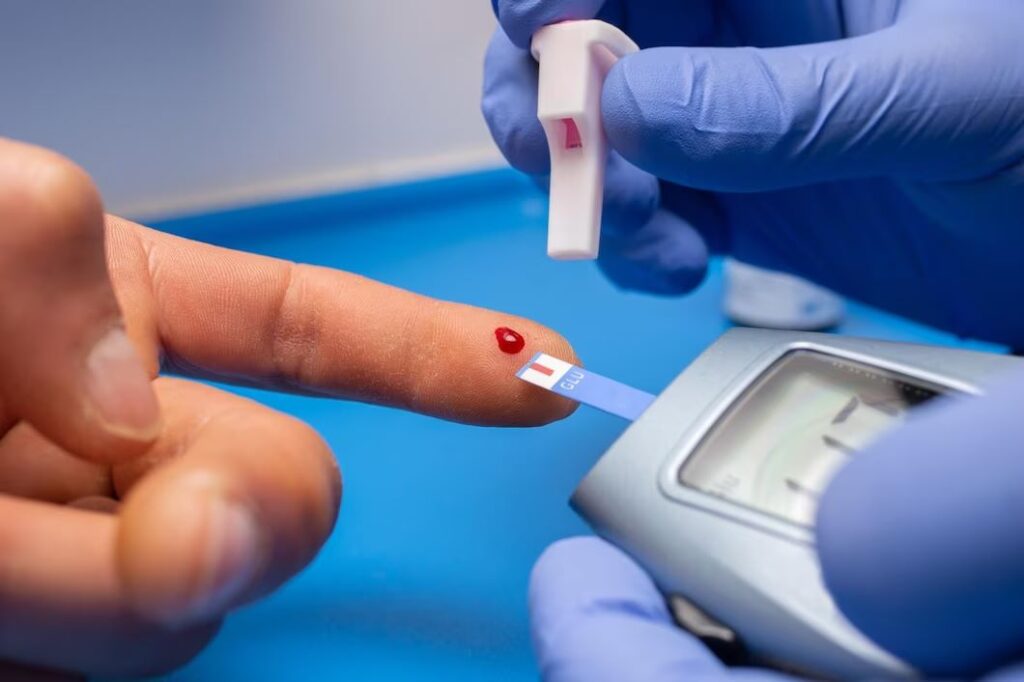Your blood sugar levels play a crucial role in your overall health, offering key insights into how well your body manages glucose. Understanding these numbers is vital for preventing and managing conditions like diabetes. In this blog, we’ll explore what blood sugar levels mean, why they matter, and how you can keep them in a healthy range.
What Are Blood Sugar Levels?
Blood sugar, also called blood glucose, is the amount of sugar circulating in your bloodstream. Your body uses glucose as its primary source of energy, and maintaining balanced levels is essential for proper functioning. Normal fasting blood sugar levels typically range between 70 and 99 mg/dL, while levels after meals should stay below 140 mg/dL.
High blood sugar, known as hyperglycemia, can indicate diabetes or prediabetes, while low blood sugar, or hypoglycemia, may signal other health issues. Keeping track of your blood sugar helps you understand how your body responds to food, exercise, and other factors.
Why Is Monitoring Blood Sugar Important?
Regularly checking your blood sugar is one of the best ways to stay informed about your health. Consistently high blood sugar levels can lead to serious complications, such as:
Type 2 diabetes: Uncontrolled blood sugar levels are a major risk factor for developing type 2 diabetes.
Heart disease: High blood sugar increases your risk of heart-related issues.
Kidney damage: Persistently elevated glucose can harm your kidneys.
Vision problems: High blood sugar may lead to diabetic retinopathy and vision loss.
By keeping an eye on your blood sugar numbers, you can take steps to prevent these complications and maintain your well-being.
How to Test Your Blood Sugar at Home
Testing your blood sugar doesn’t have to be complicated. A glucometer, or blood sugar monitor, makes it easy to track your levels at home. Here are simple steps to get started:
- Prepare your device: Insert a test strip into your glucometer.
- Prick your finger: Use a lancing device to draw a small drop of blood.
- Place blood on the strip: Touch the drop to the test strip and wait for the reading.
- Record your results: Note the date, time, and any related details, such as what you ate or how you were feeling.
How Diet Affects Your Blood Sugar
The food you eat has a direct impact on your blood sugar levels. Foods high in refined carbohydrates and sugar can cause spikes, while balanced meals with fiber, protein, and healthy fats help maintain steady levels. Here are some tips for a blood sugar-friendly diet:
Choose whole grains: Replace white bread and rice with whole-grain options.
Add more vegetables: Non-starchy vegetables like spinach, broccoli, and peppers are great for stabilizing blood sugar.
Limit sugary drinks: Opt for water, tea, or coffee instead of soda or juice.
Practice portion control: Overeating can cause a sudden increase in blood sugar.
By making these changes, you can keep your blood sugar in check and support your overall health.

The Role of Exercise in Diabetes Management
Physical activity is another powerful tool for managing blood sugar levels. Exercise helps your body use glucose more effectively, which can lower high blood sugar and keep it stable. Both aerobic exercises, like walking or swimming, and strength training are beneficial. Aim for at least 30 minutes of moderate activity most days of the week.
If you’re new to exercise, start slow and consult your doctor to create a plan that’s right for you. Pairing regular activity with a balanced diet can have a significant impact on your blood sugar control.
When to See a Doctor About Blood Sugar
While monitoring your blood sugar at home is essential, it’s equally important to see your doctor for regular checkups. Seek medical advice if:
Your blood sugar readings are consistently above or below normal.
You experience symptoms like excessive thirst, frequent urination, or fatigue.
You’re unsure how to manage your blood sugar levels effectively.
Your healthcare provider can perform additional tests, such as an A1C test, to assess your average blood sugar over the past three months and provide tailored recommendations.
Take Charge of Your Health Today
Understanding your blood sugar numbers is the first step toward better health. By monitoring your levels, making dietary changes, staying active, and consulting your doctor, you can keep your blood sugar in a healthy range and reduce the risk of complications. Start small and stay consistent—your body will thank you!
Keeping blood sugar in check is about more than just numbers; it’s about living a healthier, happier life. Take control today and unlock the power of knowing your blood sugar numbers!



